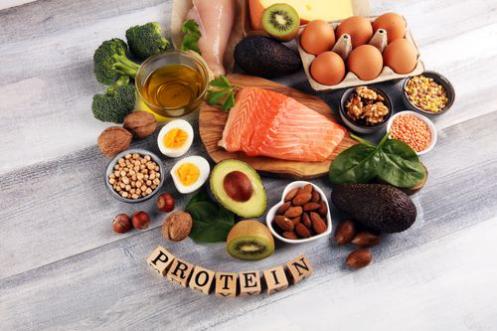Experience buy generators
Where ever you live regional power cut schedule? Today many people have started to ask each other giggle generators to equip their rooms when the power grid.

In recent days, the number of new cases of COVID-19 has continuously increased across the country. In addition to home treatment, F0 needs a reasonable diet to recover quickly. COVID-19 can cause more severe symptoms in people with weakened immune systems, older adults, and people with long-term medical conditions such as diabetes, cancer, chronic obstructive pulmonary disease, and chronic obstructive pulmonary disease. heart-related diseaes. Proper nutrition and adequate hydration are important to tackle this disease and help control symptoms. A balanced diet can optimize immune system function, improve metabolism, and may help prevent the development of chronic symptoms associated with COVID-19. A diet rich in fresh and unprocessed foods should be followed daily to provide the body with the necessary vitamins, minerals, fiber, protein and antioxidants. A proper diet will ensure that the body is in the right state to defeat the virus. Some changes to your daily routine that can help with a good recovery include:
1. High Protein Diet Patients with COVID-19 need an adequate protein intake to prevent muscle loss and maintain metabolic functions. Loss of muscle can lead to weakness, fatigue, and an inability to perform daily activities. Protein deficiencies are also associated with impaired immune system function and can worsen symptoms and lead to extended recovery times. Try to include a portion of protein-rich foods with each meal. Vegetarians can include 2-3 servings/day of beans, soy, milk and dairy products, nuts and seeds. Non-vegetarians can include all of these along with lean meats like eggs, chicken, and fish in their diet.
2. Add healthy fats Cut down on too much fat and choose cooking methods that require little or no fat, such as steaming, baking, or pan-frying instead of frying. Choose foods that contain healthy sources of unsaturated fats, like fish and nuts. To limit saturated fat, cut back on excess fat from meat and poultry and choose skinless varieties. Reduce your intake of foods such as red and fatty meats, butter and full-fat dairy products, palm oil and lard. Avoid consuming trans fats in your meals as much as possible.
3. Eat more fruits and vegetables Vitamins, minerals and antioxidants found in colorful fruits and vegetables help speed up recovery. Try to include at least 5-6 servings of fruits and vegetables in your daily meals. You can add fruit to your milkshakes or smoothies and eat seasonal vegetables in cooked, sautéed, steamed, or boiled forms.
4. Supplement with probiotics Recent research shows that probiotics can help strengthen the immune system. The healthy bacteria found in probiotics help the gut and intestinal tract fight off disease-causing germs. Yogurt, kefir, pickles, kimchi, and kombucha are high in probiotics. Probiotics support the growth of good bacteria, which play an important role in balancing the amount of good bacteria in your body and stored in the gut. These healthy bacteria help balance your digestion, immunity, and metabolism.
5. Vitamin C - "super soldier" Vitamin C protects you from infections by stimulating the formation of antibodies and boosting immunity. As an antioxidant, vitamin C fights free radicals present in the body. Get more vitamin C in your diet with citrus fruits like oranges, grapefruit, and tangerines, or red bell peppers, papayas, strawberries, tomatoes, guava, broccoli, and peppers.
6. Eat foods rich in zinc Getting enough zinc is important for the development and function of the immune system and can help wounds heal. Zinc can be found in lean meat, poultry, seafood, dairy, whole grain products, beans and nuts.
7. Don't forget foods that contain selenium Eggs contain selenium, a powerful antioxidant that plays an important role in cell health. Other sources include seafood, Brazil nuts, pumpkin seeds, grains, and dairy products.
8. Drink enough water Staying hydrated with water and clear fluids is important, even if you don't feel thirsty, to make up for lost fluids and thin respiratory secretions. If respiratory secretions are not diluted, pneumonia can result. Take sips of water, and also try water mixed with fruit, mint, lemon for better taste. Add diluted juices, clear soups, jams, smoothies to meet calorie and water requirements. Avoid drinking too much tea/coffee as caffeine tends to increase heart rate and dehydration.
9. Boost immunity with some familiar herbs Many herbs and spices can be used during this period due to their anti-inflammatory, antioxidant and antiviral properties. Spices like cloves, cinnamon, dried ginger and black pepper to boost immunity. Turmeric milk with black pepper - suggested due to its anti-inflammatory and immune properties. Herbs - like mint, basil are made into teas that help with antioxidants, improve taste, digestion and immunity. Proper nutrition is important for health, especially during times when the immune system needs a lot of energy. Limited access to fresh foods can affect our efforts to continue eating a healthy and varied diet. Remember that the above tips and diet plans are not a cure or a cure for the disease, but a way to boost your immune system to help fight off infections.
MSc. Dr. Nguyen Van Tien - National Institute of Nutrition.